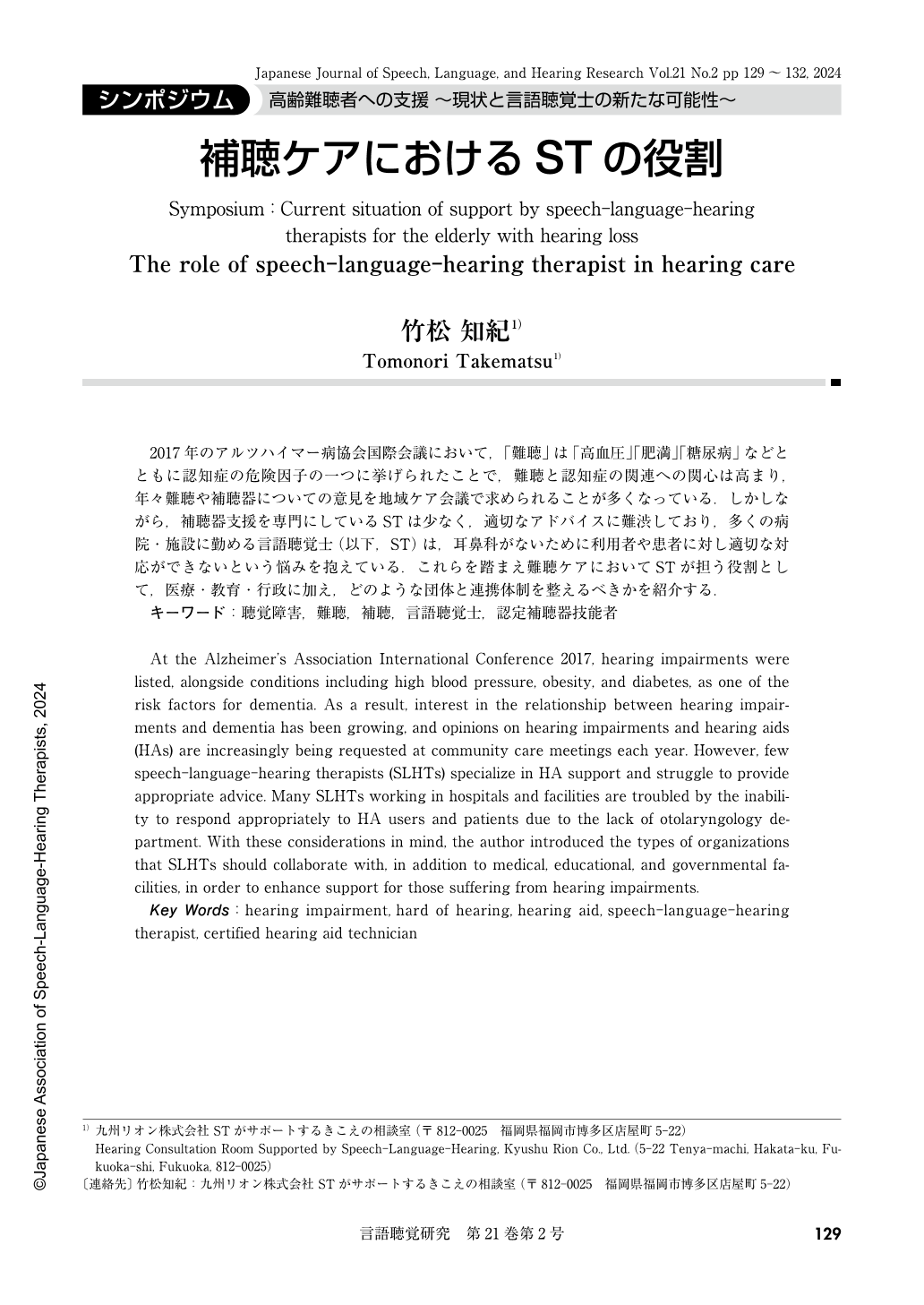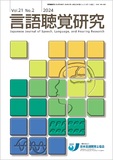Japanese
English
- 有料閲覧
- Abstract 文献概要
- 1ページ目 Look Inside
- 参考文献 Reference
2017年のアルツハイマー病協会国際会議において,「難聴」は「高血圧」「肥満」「糖尿病」などとともに認知症の危険因子の一つに挙げられたことで,難聴と認知症の関連への関心は高まり,年々難聴や補聴器についての意見を地域ケア会議で求められることが多くなっている.しかしながら,補聴器支援を専門にしているSTは少なく,適切なアドバイスに難渋しており,多くの病院・施設に勤める言語聴覚士(以下,ST)は,耳鼻科がないために利用者や患者に対し適切な対応ができないという悩みを抱えている.これらを踏まえ難聴ケアにおいてSTが担う役割として,医療・教育・行政に加え,どのような団体と連携体制を整えるべきかを紹介する.
At the Alzheimer's Association International Conference 2017, hearing impairments were listed, alongside conditions including high blood pressure, obesity, and diabetes, as one of the risk factors for dementia. As a result, interest in the relationship between hearing impairments and dementia has been growing, and opinions on hearing impairments and hearing aids (HAs) are increasingly being requested at community care meetings each year. However, few speech-language-hearing therapists (SLHTs) specialize in HA support and struggle to provide appropriate advice. Many SLHTs working in hospitals and facilities are troubled by the inability to respond appropriately to HA users and patients due to the lack of otolaryngology department. With these considerations in mind, the author introduced the types of organizations that SLHTs should collaborate with, in addition to medical, educational, and governmental facilities, in order to enhance support for those suffering from hearing impairments.

Copyright © 2024, Japanese Association of Speech-Language-Hearing Therapists. All rights reserved.


